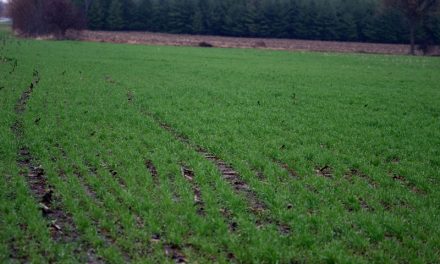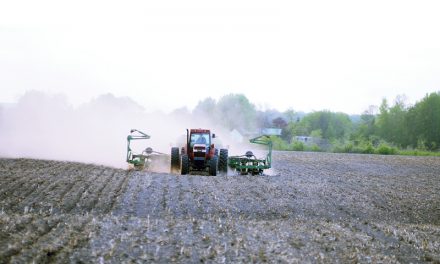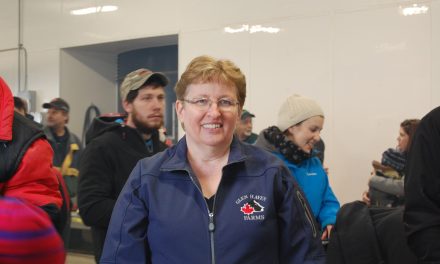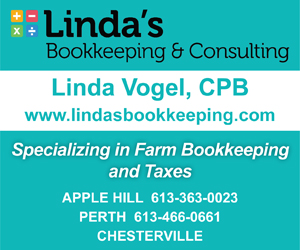By Tom Manley
AgriNews Contributor
It is commonly stated that an organic farm is labour intensive. That statement is not necessarily true when considering production labour. Organic farms have the same opportunities for mechanization and economies of scale, as conventional farms of a comparable size and production type.
There may be more trips over the field for mechanical weed control, but a lightweight finger weeder or a rotary hoe is very wide and travels quite fast. More trips do not necessarily equal a lot of time in the field.
The question of labour intensity should be restated because organic farms tend to be more management intensive. With that in mind, it is proven time and again that a good conventional farm manager makes a good organic farmer. A good conventional farmer will carry his/her skills and assets into a successful organic production and use those skills more intensely.
Secondly, all the good soil, agronomic, livestock, and business management practices that all the experts recommend are mostly the same for conventional and organic farms. But they are somewhat optional in conventional production because the farmer has access to chemical solutions to fix a problem: antibiotics, herbicides, pesticides, seed treatments, Round-up Ready and BT genetics, and so on.
On the contrary, an organic farmer considers the same good management practices as mandatory to succeed in the absence of the chemical problem solvers and to earn the organic certificate and the price premium. Therefore, the organic farmers invest more time and expertise to master and proactively apply all the good management practices, and then some.
For one, any good farmer uses a scientific method of keen observation of biological processes on the farm, does a lot of reading and studying of agronomy and animal husbandry, goes to the conferences and workshops, discusses with, and learns from other farmers, and gets expert advice. The scientific farmer experiments with genetics, production inputs, and management regimes to engage in a process of continuous improvement. Such experiments are done in comparative trials to test the new idea against the reference and compare different inputs.
The scientific farmer does the research on production inputs and management methods. Organic production inputs are non-patented natural materials. There is no salesperson in a shiny new truck with a patented product plated with a high margin, proprietary ingredients, pseudo-scientific studies, and a massive advertising budget.
There are not enough margins in competitive non-proprietary natural inputs to publish proprietary crop research. The organic farmer must figure it out and pay for information, such as hiring an agronomist, attending a workshop, or talking to others.
A good farm manager keenly understands the cost of production and implements changes to optimize profitability. A good manager knows that success is not measured in yield, especially not in one year. Success is measured in bottom line profitability by balancing inputs, crop yield, and market prices, even sometimes sacrificing crop yield for financial yield and long-term farm development.
To optimize profitability, a good farmer leverages the free resources on the farm such as the free nitrogen in the air, the free microbes and earth worms in the soil, the free weed suppression that comes from canopy development, and the free pest and disease suppression that comes from crop rotations and an active soil life.
A good farmer thinks long-term, well beyond this year’s crop revenue and input costs, to develop soil organic matter through cover crops, soil microbial life with soil aeration and chemical avoidance, and a self-sufficient nitrogen cycle between legumes and grains. A good farmer is a systems thinker who goes beyond the NPK of a single crop in one year. The organic farmer plans a long crop rotation to cycle nitrogen, avoid pests and disease, design synergies between the crop types in the rotation, and build long-term production and profit capacity that beats any NPK-based production system.
The good organic farmer is also a good marketer. Outside of the fixed price of certain commodities such as dairy, there is no central price reference like CBOT for organic commodities. Therefore, the good organic manager develops premium markets, seeks out valuable customer relationships, personally discovers price trends, and implements a sales plan for optimal profitability.
Being a good manager, the successful organic farmer is also an able entrepreneur. This explains why we see a disproportionate number of organic farmers in direct marketing, on-farm processing, and consumer-ready retail products.
This is a call to good farm managers and entrepreneurs. Opportunities exist to develop your skills, take ownership of your production methods, serve premium markets, and grow your farm profits.












